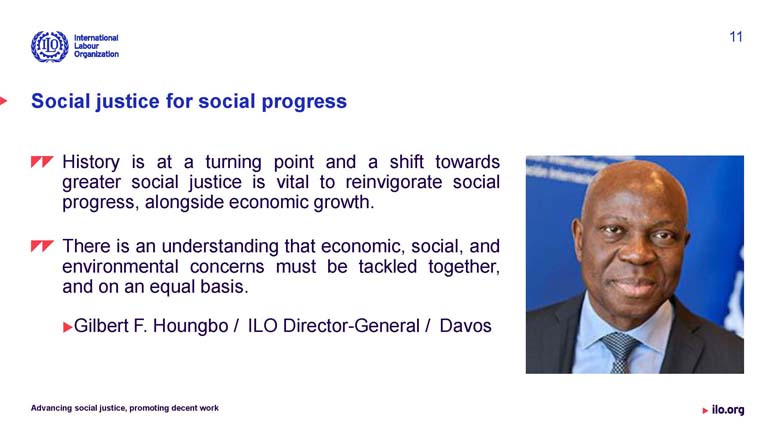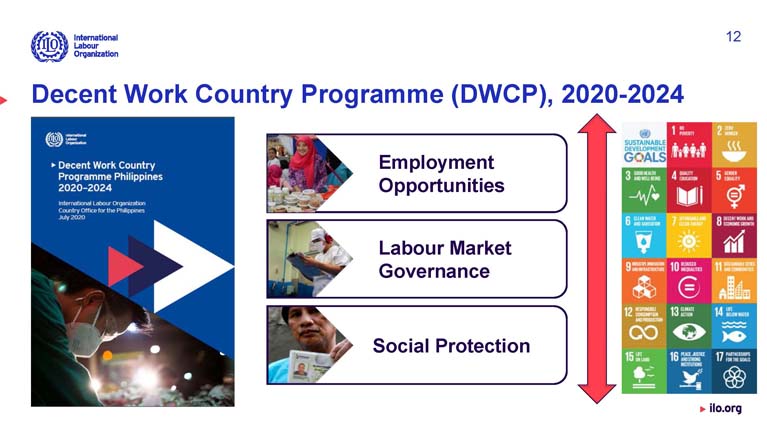Future of work
Keynote address at the 2023 Talent summit: The impact of the future of work
By Mr Khalid Hassan, Director, ILO Country Office for the Philippines at the 2023 Talent summit: The impact of the future of work of the American Chamber of Commerce of the Philippines, Inc. (AmCham), 2 February 2023, Manila, Philippines
- Honourable Secretary Laguesma of Department of Labor and Employment (DOLE);
- Mr Thiel, American Chamber of Commerce of the Philippines, Inc. (AmCham) President;
- Mr Hinchliffe, AmCham Executive Director;
- Mr Cecilia, AmCham Co-chair;
- Distinguished representatives from employers organizations, chambers, and businesses;
- Ladies and gentlemen, good morning!
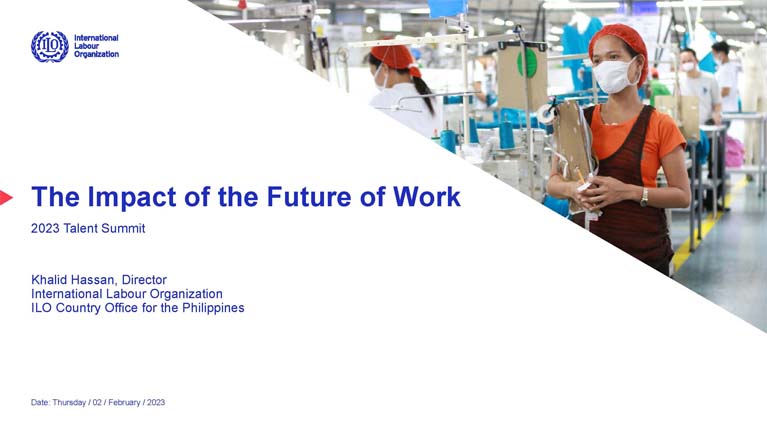
Coupled with this, the country is also experiencing transformative changes in the world of work because of rapid technological innovation, demographic shifts, and climate change.
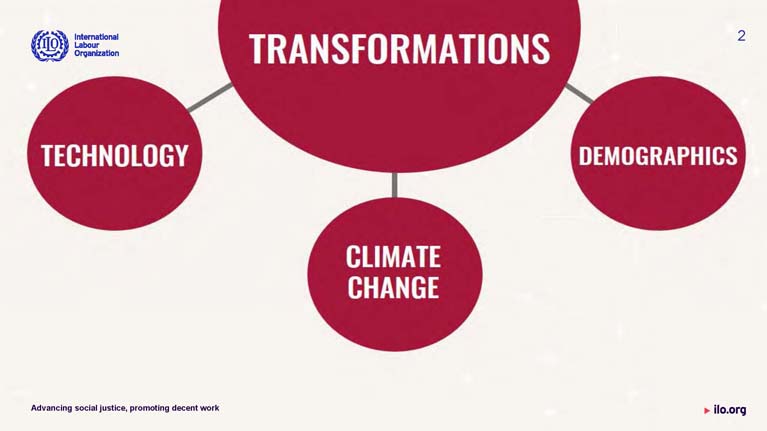
Higher life expectancies coupled with lower mortality and reproduction rates have resulted in population ageing in many parts of the world. However, some countries, like the Philippines, continue to have relatively young populations with sizable youth cohorts that enter the labour force in search of decent work.
A large portion of the workforce still derive their livelihoods from the agricultural sector, which is particularly vulnerable to climate change. This highlights the importance of creating “green jobs” that positively impact the environment and ensure a just transition for workers as they change occupations and sectors.
The ILO adopted the Centenary Declaration for the Future of Work in 2019 in response to these challenges and to mark its 100th anniversary.
The Global Commission (GC) on the Future of Work identified a human-centred agenda for a “brighter” Future of Work “that strengthens the social contract by placing people and the work they do at the centre of economic social policy and business practice”.
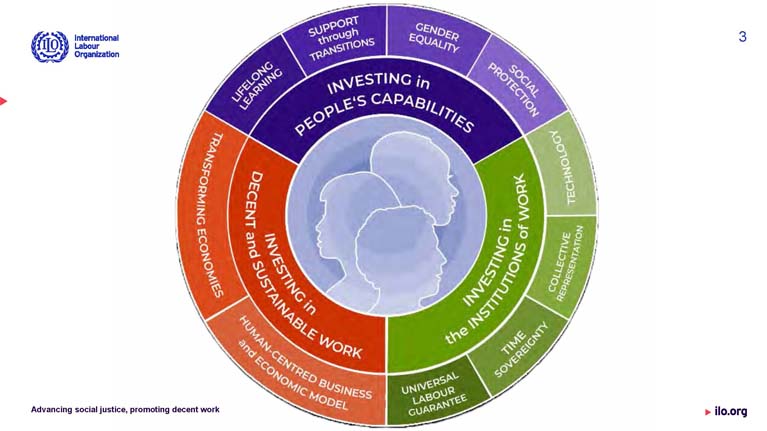
The first pillar, increasing investment in people’s capabilities, includes a universal entitlement to lifelong learning, the strengthening of institutions and policies to support people towards a just transition, the implementation of a transformative agenda for gender equality, and the strengthening of social protection systems.
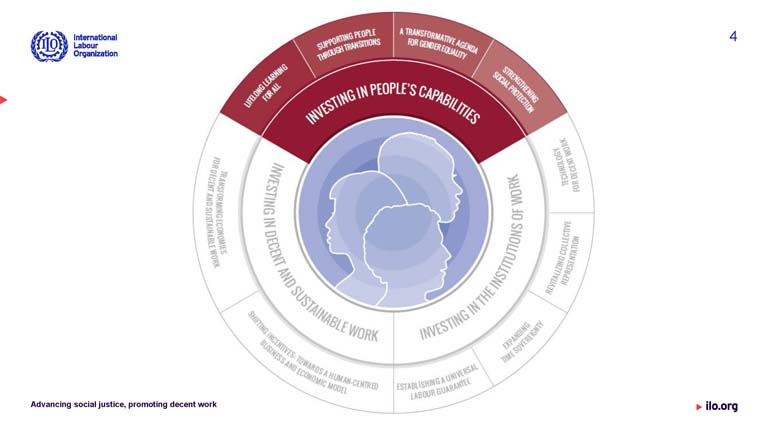
The second pillar, increasing investment in the institutions of work, calls for establishing universal labour guarantees, in which all workers, regardless of their employment status, are entitled to fundamental workers’ rights and an “adequate living wage”, maximum limits on working hours, and protection of safety and health at work.
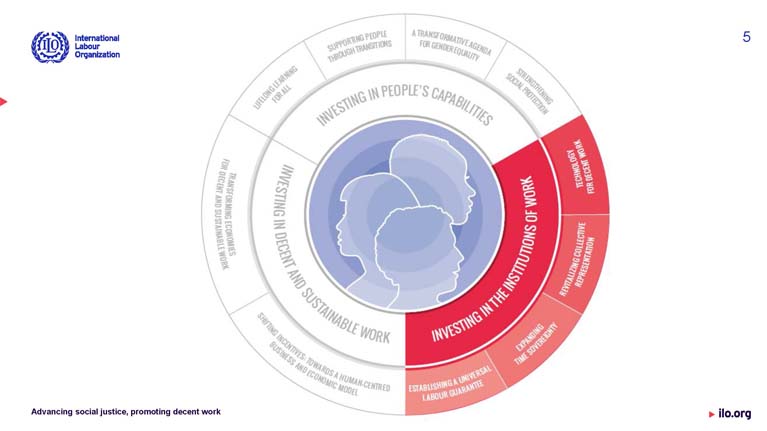
From regulations and employment contracts to collective agreements and labour inspection systems, these institutions are the building blocks of just societies. They forge pathways to formalization, reduce working poverty and secure a future of work with dignity, economic security and equality.
The third and final pillar, increasing investment in decent and sustainable work. The major economic shifts under way – involving new technologies, demographic upheaval and climate change – will have both disruptive and transformative effects on our economies and on work.
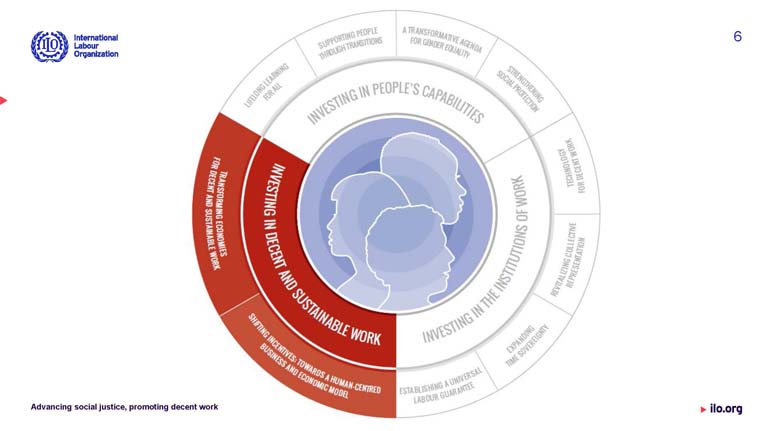
Countries must now prioritize long-term, sustainable investments that favour human development and protect the planet, in line with the United Nations 2030 Agenda for Sustainable Development.
These include transformative investments that foster incentives in key areas such as sustainable work, reshaping business incentive structures, and human-centric development indicators. Employment and output shifts towards higher productivity sectors of the economy may require further investments in construction, energy, infrastructure, and transport.
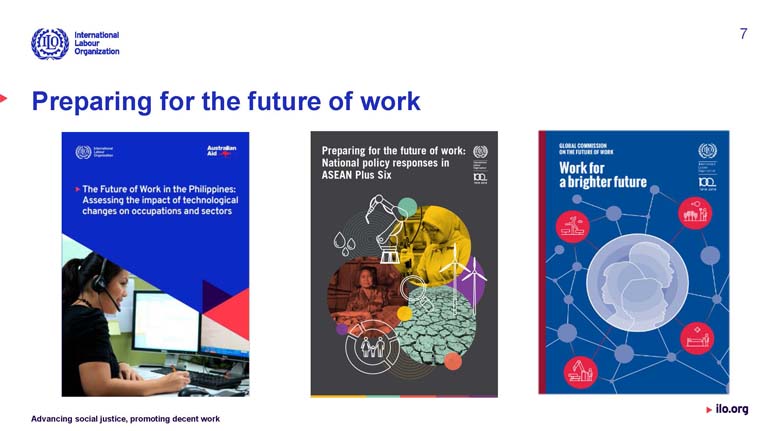
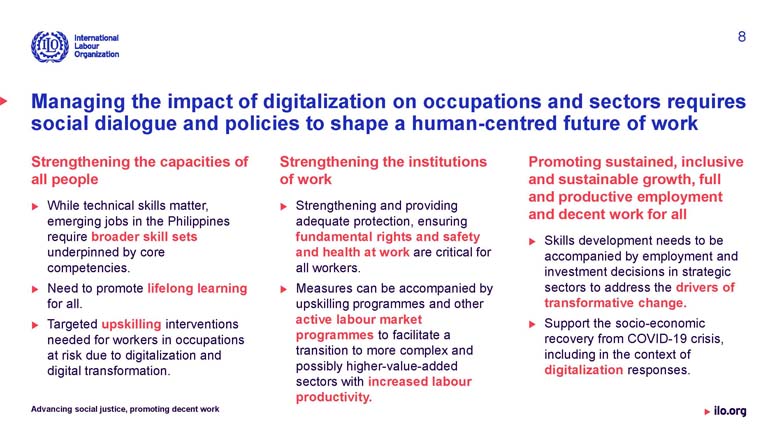
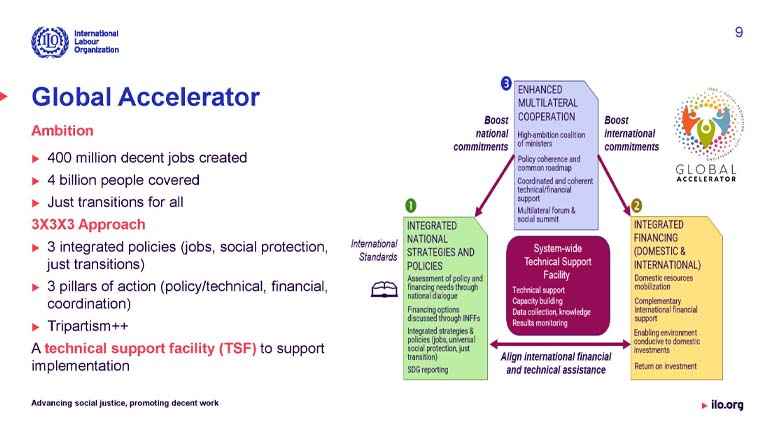
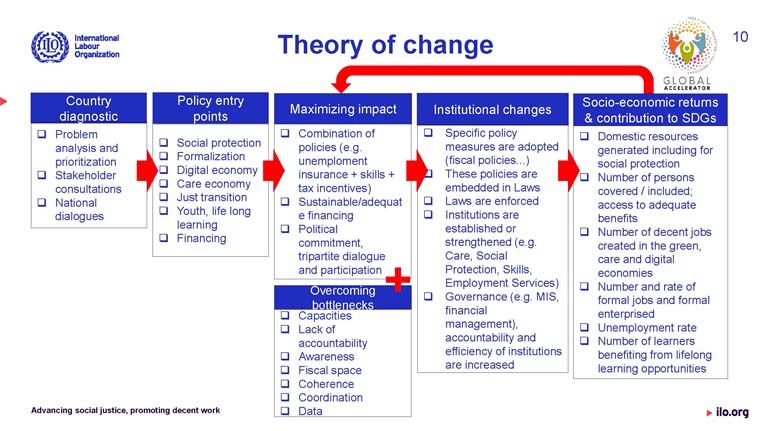
At the World Economic Forum in Davos last month, ILO Director-General Gilbert Houngbo said:
“History is at a turning point, and a shift towards greater social justice is vital to reinvigorate social progress alongside economic growth. There is an understanding that economic, social, and environmental concerns must be tackled together and on an equal basis.”
